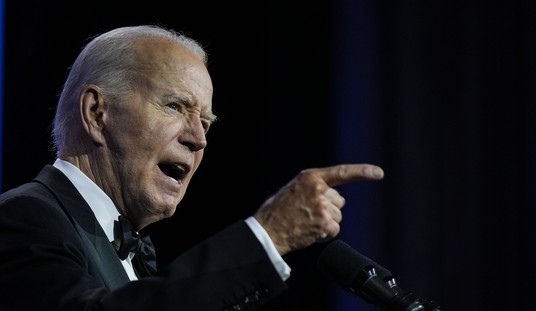For several months I’ve been running to the magazine section of my local bookstore to browse Vanity Fair. And each month I find that what I’m looking for in that publication is missing.
You see, Sean Penn, the gifted actor and not so gifted journalist, reportedly flew to Cuba last October to interview Fidel Castro on behalf of the magazine. It’s unclear whether Penn actually got to see the communist dictator. Castro has met with very few visitors since taking ill in 2006, and the handful of exceptions have been foreign government officials. The veil of secrecy around Castro’s health continues to be quite opaque. But let’s assume that Penn got the access that none of the foreign media outlets based in Havana have gotten despite their Faustian bargains with the regime. It’s quite easy to predict what Penn’s work would look like.
First of all, Penn would report that Castro is in “excellent” physical health. Undoubtedly, we would read about how “bright-eyed” Penn found the octogenarian despot. Castro’s stamina would be “impressive” and his posture would certainly be quite “upright” in Penn’s eyes. Penn would tell us how “alert” Castro is and how “encyclopedic” his memory is.
What we wouldn’t learn is what caused Castro to ostensibly step down from power to begin with. That’s a state secret, of course. Imagine if President Obama had a health concern and the White House instantly moved toward a complete media blackout of the story.
The inquisitive Penn would ask the “maximum leader” about the state of U.S./Cuba relations, and Castro’s response would be that Cuba is a country that has been under siege from its imperialist neighbor to the north for the last 50 years. The word “blockade” would definitely appear in Penn’s article, for it is the disingenuous term Cuba’s communists have always used for America’s commercial trade embargo.
But Penn would omit the true origins and intent of the embargo. He would also neglect to tell Vanity Fair’s audience that Fidel himself rejected commercial relations with the U.S. while Cuba was a client state of the Soviet Union. The fact that the United States is Cuba’s leading food supplier despite the “blockade” would also be missing from Penn’s reportage. It’s too much of an inconvenient truth for those like Penn who have an agenda of appeasing left-wing tyrants.
Penn would lament the business that U.S. firms are missing out on because of our “barbaric” economic policy toward Cuba. He would not discuss, however, how the Castro brothers are deadbeats who borrow and borrow and never pay back a cent. Countries from around the world are lining up to try to collect with no luck. And surely Penn would omit the fact that “opening up” trade with Cuba would open the door to taxpayer-funded credit from institutions like the Export-Import Bank of the United States, which according to its mission statement “assume[s] credit and country risks that the private sector is unable or unwilling to accept.” The reason Penn wouldn’t mention this is because even in the era of bailouts, it’s still not politically correct to bail out foreign dictatorships.
Of the current American president, Castro would certainly be quoted by Penn as saying that Mr. Obama’s intentions of establishing a dialogue between the two countries is a welcome change in comparison to the “imperialistic” George W. Bush, but that Obama has not shown the determination to stand up to the Cuban-American “mafia” that “controls U.S. foreign policy” with regards to Cuba. Penn wouldn’t discuss the fact that the true conflict is not between the Cuban and U.S. governments, but instead between the Castro regime and the Cuban people. He also wouldn’t write about how the regime continues to deny that it represses, abuses, and imprisons dissenters despite the fact that groups like Amnesty International and Human Rights Watch continue to denounce it for precisely these reasons.
It’s likely that Penn would mention the plight of the “Cuban Five” currently in U.S. federal prison who Castro would refer to as “anti-terrorism fighters,” but the details about how these convicted spies were part of a large espionage ring that was, among other things, responsible for the downing of two American civilian aircraft over the Florida straits, killing four people, would not be published in his article. And certainly there would be no mention of Kendall and Gwen Myers, a couple of longtime State Department employees who recently pled guilty to spying on behalf of Cuba for 30 years.
No, we don’t need to be psychics to predict what the media and sympathizers like Sean Penn would say about Castro and Cuba. We just need to pay closer attention — because it’s the same whitewash they have been repeating ever since Herbert Matthews of the New York Times became Fidel’s unofficial publicist in 1958.









Join the conversation as a VIP Member